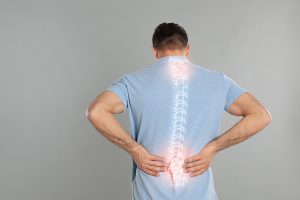Spinal Injuries Can Change Your Life Forever
 Michael Babboni
Personal Injury
When someone is described as “spineless,” the implication is that the person is weak or cowardly. However, any lack of functionality to a spine would be far more serious than just undesirable social behavior in actual real-world conditions.
Michael Babboni
Personal Injury
When someone is described as “spineless,” the implication is that the person is weak or cowardly. However, any lack of functionality to a spine would be far more serious than just undesirable social behavior in actual real-world conditions.The spine is the “freeway” of the human nervous system. It is a major road that houses a central trunk of nerves that travel from the brain down the back and eventually split up into individual nerve networks that go throughout the entire body, from the hands to the lungs to the toes. This means that if someone is the victim of a spinal cord injury, any number of potential symptoms could now be a permanent aspect of life, depending on where along the spinal cord the injury occurred and how serious the injury is. Some of the more common symptoms of spinal cord injury include:
Paralysis
If the nerves that control movement are damaged within the spinal cord, then, unfortunately, movement may be difficult or even impossible. In addition, spinal cord injury can result in the loss of control of a single limb, such as an arm no longer functioning, or it can lead to the complete loss of use of legs.
In the worst-case scenarios, all the limbs may no longer function, resulting in a person unable to move and bedridden for the remainder of their lives.
Breathing
If a spinal cord injury occurs at the chest level, it may affect the functioning of the diaphragm, which is the muscles responsible for pumping the lungs to open and close, taking in oxygen. If a spinal cord injury results in breathing difficulties, this can, if permanent, cripple a person’s ability to live a normal life.
One of the most extreme examples of a breathing problem related to spinal cord injury is the inability to breathe unassisted. As a result, some people may require the use of medical hardware known as a “ventilator,” where the machine pumps oxygen into the lungs of the victim. In cases of permanent diaphragm injury, accident victims will rely on ventilators to breathe for the rest of their lives.
Bowel/Bladder Control
Typically, the nervous system can detect when the bowel or bladder is full and requires using a toilet to empty. Unfortunately, with spinal cord injuries, the damage can sometimes result in the body no longer sending these signals in a timely fashion or at all.
This can mean injury victims now have no natural way to tell when they need to use a toilet, resulting in embarrassing bowel or bladder accidents. It may require the need to wear diapers during normal, day-to-day activities, such as working or shopping, or may require surgery, the use of a catheter, or other workaround solutions to compensate.
If you or someone you know has sustained a spinal cord injury in an accident caused by someone else, talk to a personal injury lawyer in St. Petersburg. If negligent action was what caused the injury, then legal action can be taken to ensure that not only is the person or group at fault recognized but they are held financially accountable for what their negligence has done to someone else.
